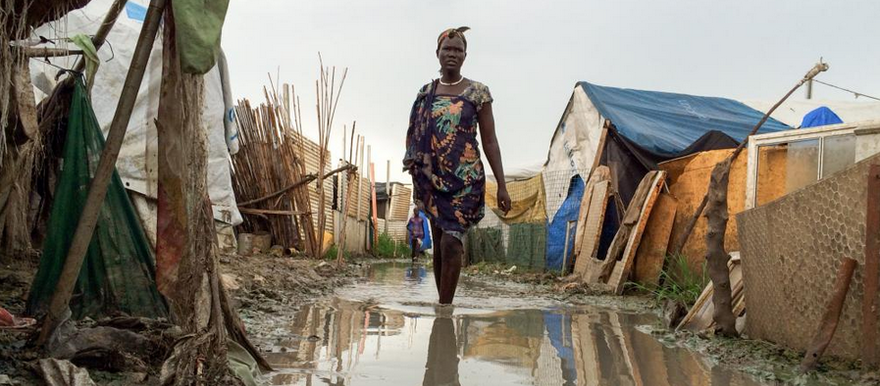Thousands of flood-affected residents in parts of Baliet County of Upper Nile State are in dire need of humanitarian aid months after floods hit the area.
In December last year, the level of rising floodwaters in parts of Upper Nile State, displaced several civilians and destroyed livelihoods, with Baliet hard-hit, and cut off from the rest of the state.
Speaking to Radio Tamazuj, Adet Akech, the acting Baliet County commissioner, said they lack food and shelter after the floods caused by the overflow of the Soba river hit the county over a month ago.
“As we speak, we are also cut off from Malakal, the states' capital, we get no basic services. There are no means for transport, except through water. And the level of floodwaters continues to rise, destroying farms and homes. Hundreds of households are suffering, including the returnees from Melut County,” Adet explained.
The county official warned of looming hunger in the coming months if no support is provided. He urged the national government and its partners to intervene by providing food and shelter.
For his part, Moses Dhieu Ador, the deputy county Relief and Rehabilitation Commission (RRC) director, said 1,500 households have been affected by the floods in parts of the county, and they lack food and shelter.
“Floods have destroyed farms. And for the dry areas birds are eating up food. Between Malakal and Baliet, roads are blocked by the floods. There is no food. People depend on wild leaves and fish. Almost 1,500 people are affected by the floods in areas of Adong, Agelaciel, Aboung, and Nyokdial,” Dhieu said.
The RRC official urged the government and aid agencies in the country to provide the flood victims with food and life skills.
According to a report released jointly by the government and the United Nations (UN) in December last year, 7.24 million people in parts of the country will face food shortage this year due to the combined effects of the floods, conflicts, and Covid-19.




